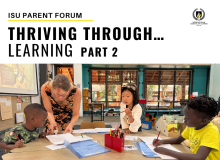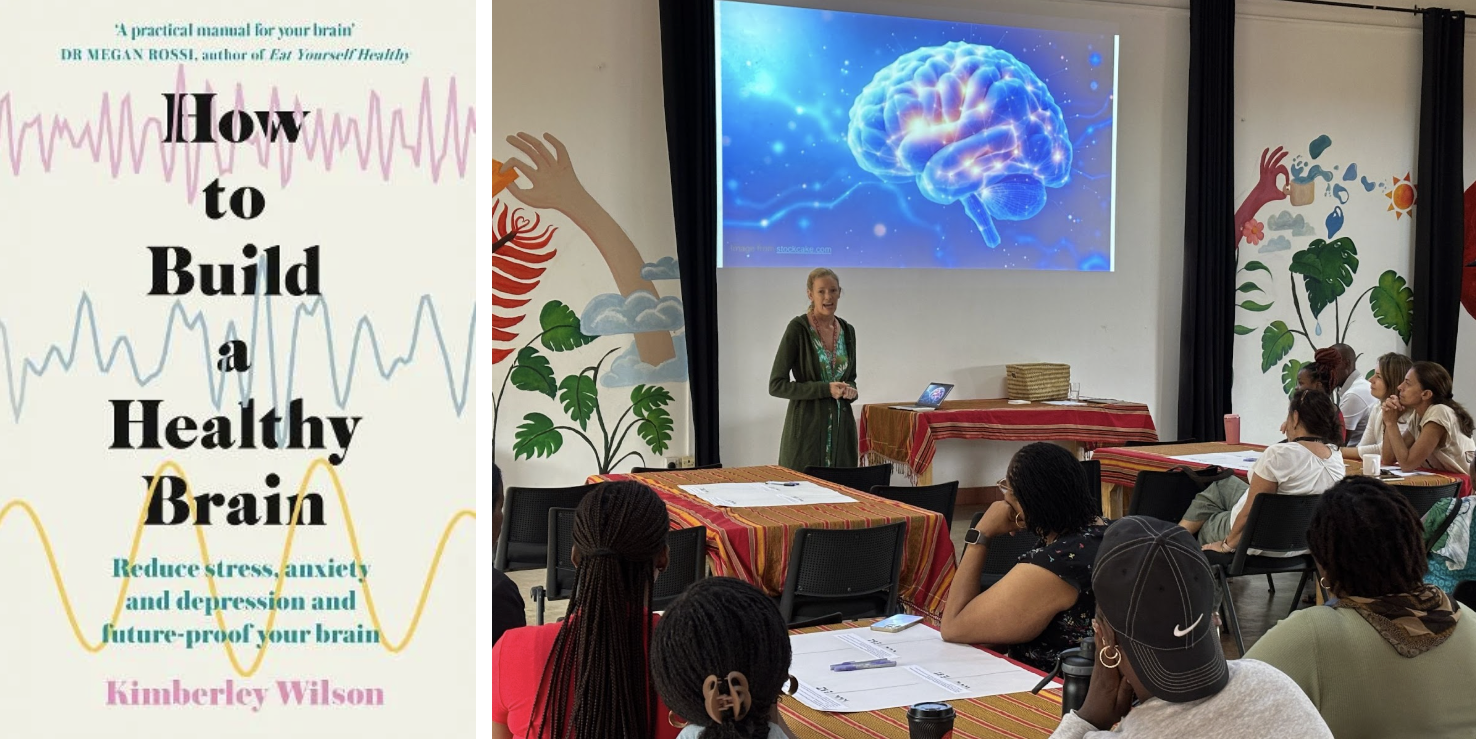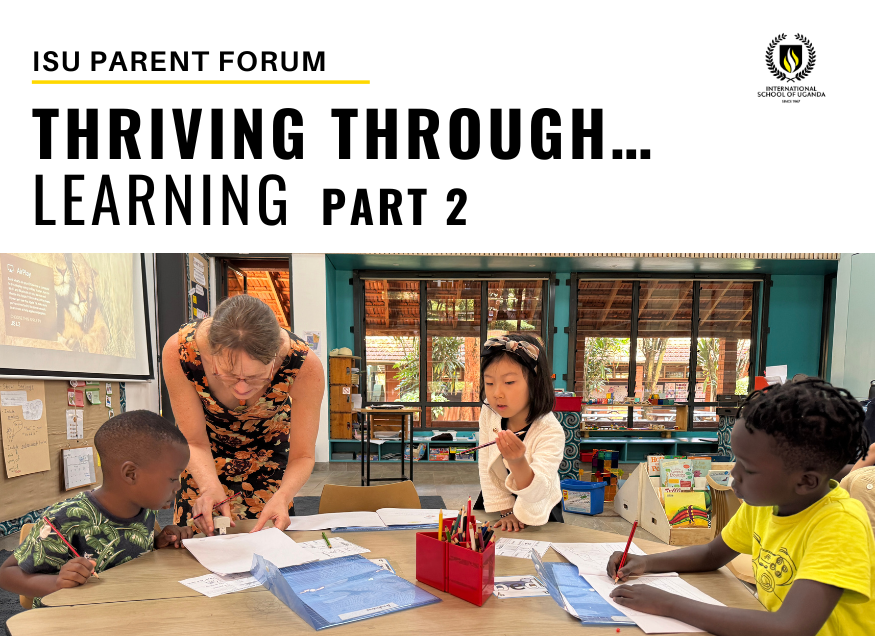
Our latest parent workshop, Thriving Through… Learning (Part 2), brought together an engaged group of families to continue exploring how we can best support our children’s development as thriving learners—both inside and outside the classroom.
We kicked off the session with a quick "True or False" brain quiz to spark our thinking about how the brain works. It was a fun and eye-opening way to ground our learning in neuroscience and bust a few common myths!
Understanding the Brain: What Helps Children Learn Best
Sarah Ssengendo, our PYP Coordinator and Junior School Assistant Principal, led a thought-provoking session rooted in current brain research. She reminded us that a thriving brain is supported by some key pillars:
Sleep
Sleep is not just rest—it's restoration. After a good night’s sleep, our brains are more focused, better at connecting with others, and ready to take on the day. Establishing routines, particularly in the hour before bedtime, helps the brain wind down and prepare for quality rest.
Feeding the Brain
Although the brain makes up only 2–3% of our body weight, it uses up about 20% of our daily calorie intake. This means the quality of the food we eat matters greatly. Some key brain-boosting "superfoods" include:
- Oily fish
- Berries
- Seeds and nuts
- Plenty of water
Highly processed foods and sugar, on the other hand, offer little nutritional value to the brain. Notably, there is a growing body of research linking sugar intake with both tooth decay and mental health challenges. Encouraging regular brushing and mindful eating habits supports both physical and emotional health.
Movement Matters
Physical activity boosts brain function—and just 20–30 minutes a day can make a big difference. For younger students, movement is easier to integrate into their daily routines. For older students, especially during exam times, movement can feel like a lower priority. However, encouraging even short bursts of activity before studying or testing can improve focus, memory, and emotional regulation.
Emotional Health & Connection
When we are emotionally well, our brains are better able to learn and adapt. Emotional health is supported by:
- Talking and connecting with others
- Acts of kindness and service
- Embracing challenges and developing perseverance
- Taking time to play, explore, and problem-solve
It's okay for children to struggle sometimes—this is where growth happens. As parents and caregivers, we can model resilience and support children through these experiences.
Further Reading Recommendation:
For those wanting to dive deeper, Sarah recommended Kimberley Wilson’s book, How to Build a Healthy Brain—a practical and science-based guide to nurturing mental health and wellbeing.

What Makes an IB World School?
The second part of our workshop focused on what it means to be an IB World School and how ISU implements the IB Standards and Practices to create an environment where students can thrive.
As part of our journey toward our upcoming IB Evaluation Visit in April 2025, the school is currently engaged in deep reflection and review of our practices. During the session, parents had the opportunity to:
- Learn more about the IB philosophy and framework
- Review the key standards and practices that shape IB schools
- Share their insights and reflections on how these standards and practices are reflected in their child’s learning experience at ISU
#ISUParentBlogs #ISUParentForum





.png&command_2=resize&height_2=85)

.png&command_2=resize&height_2=85)
.png&command_2=resize&height_2=85)
.png&command_2=resize&height_2=85)







.png&command_2=resize&height_2=85)


.png&command_2=resize&height_2=85)




